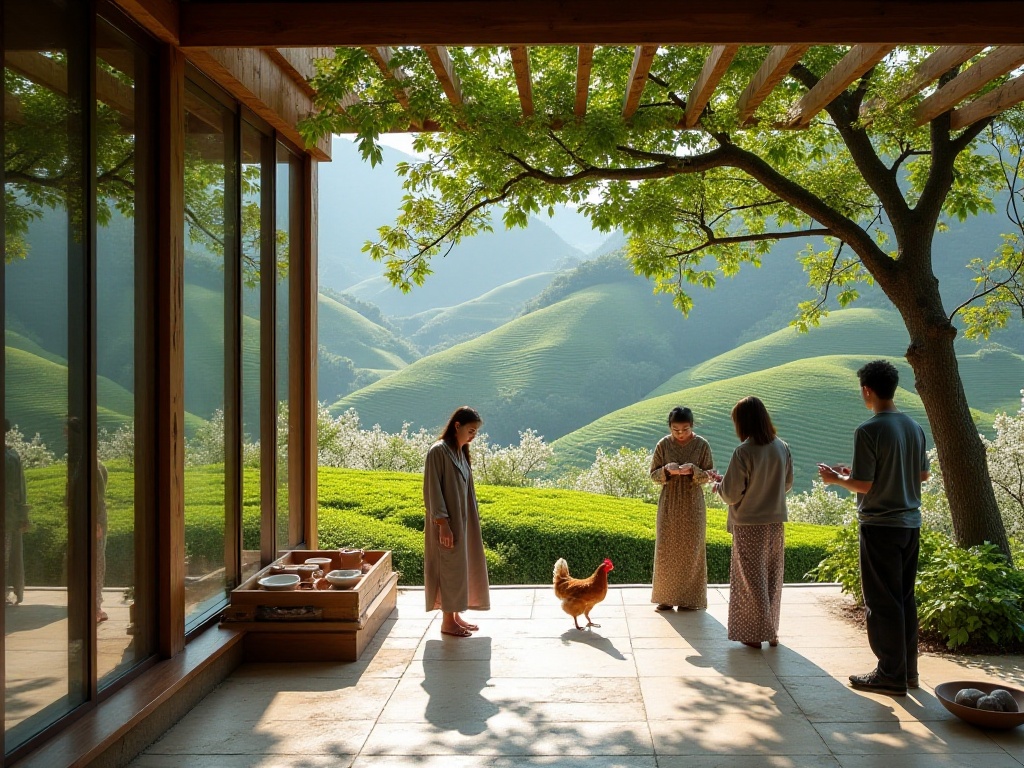
Origins
It was a perfect sunny afternoon as I wound my way through the deep mountains of Southeast Guizhou, searching for interesting rural tourism stories. The air was filled with the fragrance of soil, and Buyi folk songs echoed from afar. As I passed through a bamboo grove, the sight before me left me stunned: amid layers of terraced fields, several architecturally striking wooden cabins stood quietly in golden waves of rice, with sunlight reflecting brilliantly off floor-to-ceiling windows. Surrounding them were terraced fields following the mountain contours, distant peaks shrouded in clouds, and clear mountain springs flowing along the field ridges. This unique scenery was like a perfect landscape painting, causing me to stop in my tracks and take several photos with my phone.
First Encounter
Following the wooden walkway, I eagerly entered this unique café. As I pushed open the door, rich coffee aromas greeted me, perfectly blending with the fresh scent of the rice fields. The café featured a minimalist Japanese style, with natural wood furniture, off-white walls, dark brown hardwood floors, and green plants scattered throughout, creating a peaceful and comfortable atmosphere. Most captivating was an entire wall of floor-to-ceiling windows that captured the complete view of the terraced fields outside, making you feel as if you were inside a painting.
As I was absorbed in this beautiful scenery, a young figure approached. This was the owner, Xiao Yang, a vibrant post-90s woman. She wore a loose linen shirt and had a warm smile. Surprisingly, she had previously worked as a product manager at a well-known internet company in Shanghai, earning several hundred thousand yuan annually, yet she chose to resign and return home to start her business. When I asked why she opened a café in the rice fields, her eyes sparkled.
The Reason
Xiao Yang said the idea wasn't coincidental. During her years working in Shanghai, she had visited countless trendy cafés. While each had its unique features - elaborate latte art, fashionable décor, creative themes - she always felt something was missing. Then during one Qingming Festival back home, she stood on a mountaintop, looking at these ancestral terraced fields.
It was spring plowing season, with villagers busy in the fields and smoke rising from village chimneys, creating a peaceful and harmonious scene. Suddenly, she had an inspiration: why not open a café in the most beautiful scenery? This could let urban people experience rural charm while contributing to hometown development.
Once this idea took root, she began extensive research, studying rural tourism development cases, and specifically visited several rural specialty cafés in Yunnan and Zhejiang. After careful consideration and planning, she decided to quit her job and return home to start her business.
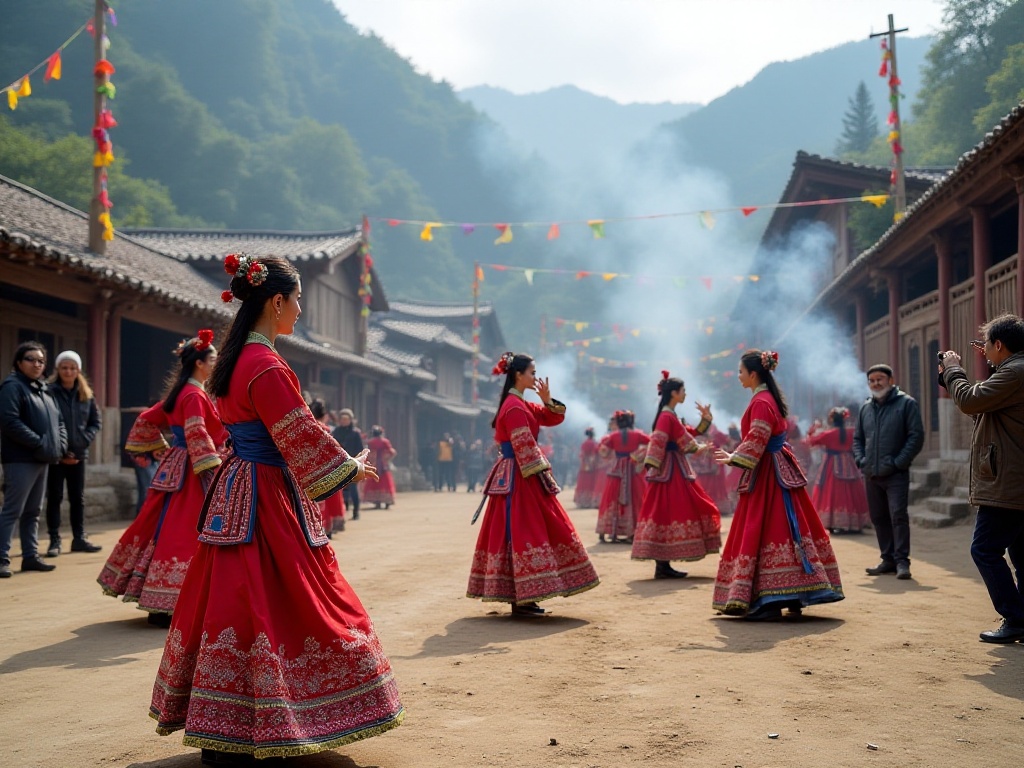
The Entrepreneurial Journey
Opening a café in the deep mountains was bound to face challenges. Xiao Yang told me that just selecting the location was incredibly challenging. She rode her motorcycle through dozens of miles of terraced fields, searching for the perfect spot. There were many factors to consider: first, transportation had to be convenient for visitors; second, the view needed to be good, showcasing the spectacular terraced fields; and the terrain had to be suitable for construction without safety concerns.
The hardest part was convincing the village committee to support the project. Initially, village officials and elders thought she was being unrealistic. To them, coffee was a city drink, and opening a café in the countryside seemed absurd. But Xiao Yang didn't give up, repeatedly explaining her ideas to villagers, showing successful cases from other places, and outlining the benefits the project could bring to the village.
Persistence paid off, and the village committee finally agreed. The café officially opened in spring 2021. On opening day, the whole village was excited, with many villagers trying coffee for the first time. Seeing their curious and delighted expressions, Xiao Yang felt all the hardship was worthwhile.
Time proved her choice correct. In just two years, this café hidden in the rice fields attracted over 100,000 visitors. Guests came not only from within Guizhou but many specifically traveled from major cities like Beijing, Shanghai, Guangzhou, and Shenzhen. During weekends and holidays, reservations often needed to be made several days in advance. More importantly, the café's success drove tourism development in five surrounding villages, with many villagers starting farmhouse restaurants and homestays, and many young people returning to start businesses.
Unique Experience
Drinking coffee here is definitely a unique experience. Xiao Yang intentionally designed the café as a viewing platform, where every seat offers different angles of the terraced fields. Each season brings different scenery: in spring, newly planted seedlings form a tender green carpet swaying in the breeze; in summer, rice fields ripple like green waves with frog choruses at night; in autumn, golden rice waves undulate like a golden ocean; in winter, water in the terraces reflects sky and clouds, creating natural mirrors.
Besides viewing, Xiao Yang collaborates with villagers to develop characteristic experience activities. If interested, you can wear traditional straw rain capes and learn rice planting from experienced farmers. The elders patiently teach you how to neatly plant seedlings in the mud, experiencing farmers' labor-intensive work. During harvest season, you can use sharp sickles to experience the joy of harvesting. The cut rice is bundled and carried back to the drying ground on shoulder poles, each movement filled with the essence of the soil.
The most popular is the "Field Ridge Sunset Meeting," where every evening, people can sit on the field ridges, drinking coffee while listening to village elders tell the history of the terraced fields. These terraces mostly have hundreds of years of history, each field carrying countless generations' sweat and memories. The elders tell stories from their youth in local dialect, and though there may be language barriers, their sincere emotions touch every listener.
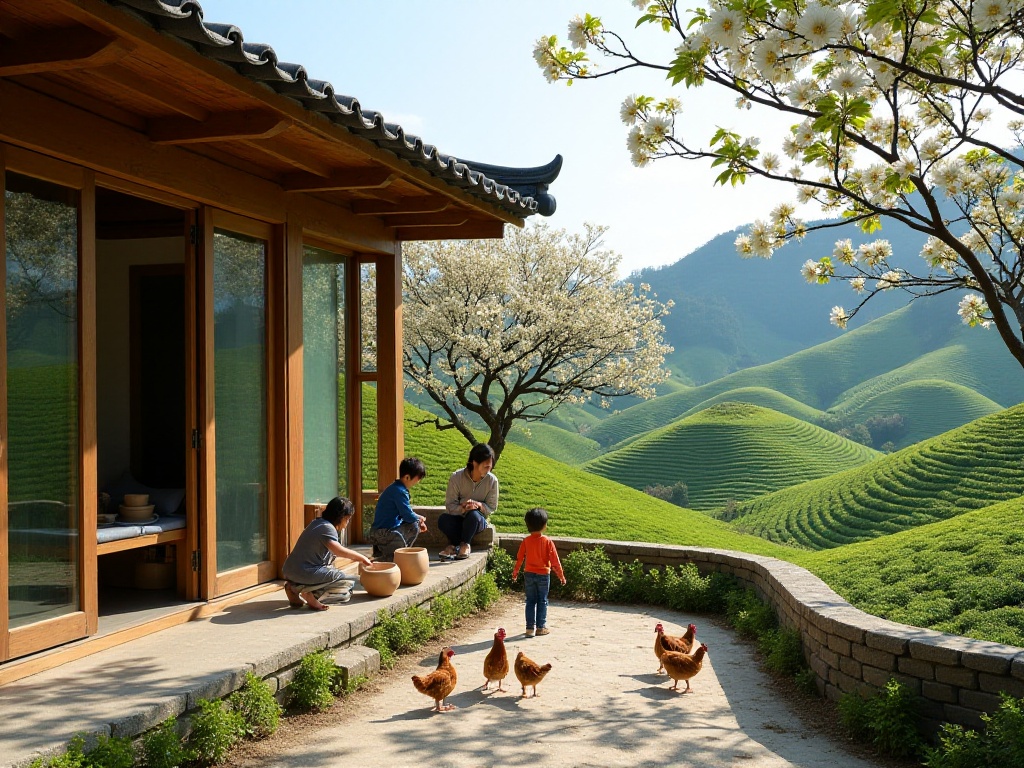
Innovative Highlights
What makes this café most unique is its successful fusion of traditional farming culture with modern lifestyle. While preserving traditional features, it incorporates modern design elements. For example, the café's architecture adopts a modern minimalist style but uses all local wood, handcrafted by village carpenters; the interior decoration primarily uses natural wood and glass but incorporates traditional Buyi patterns in details.
The menu design is also distinctive. Besides regular coffees like lattes, Americanos, and cappuccinos, Xiao Yang has developed many innovative products based on local specialties. The most popular is coffee ice cream made with local glutinous rice, perfectly blending creamy glutinous rice with rich coffee for an unforgettable taste. There's also special coffee mixed with Miao honey, adding a unique flavor dimension with honey's sweetness.
Brunch is also special, with Xiao Yang and village aunties developing multiple fusion dishes. For example, the brunch set with local preserved meat pairs homemade bacon with freshly baked toast and hand-dripped coffee, letting visitors experience unique rural flavors. On weekends, they offer special afternoon tea sets, serving local snacks in bamboo baskets with fragrant coffee, evoking strong nostalgia.
To ensure fresh, quality ingredients, most café ingredients come from surrounding farmers. Vegetables and fruits are picked daily, and grains and oils are all grown by villagers. This not only ensures food quality but provides a stable sales channel for local farmers.
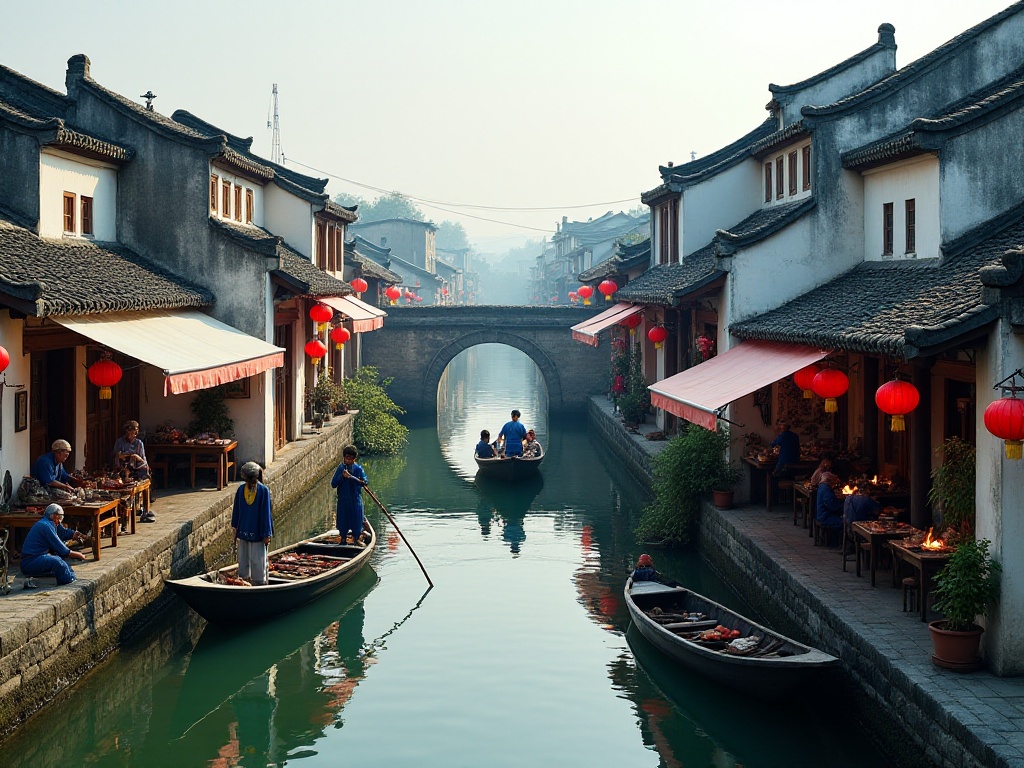
Social Value
The café's success isn't just reflected in economic benefits, but more importantly in its social value. Statistics show that since the café opened, the village's youth return rate has increased by 30%. Many young people working outside saw hope in hometown development and returned to start businesses or participate in rural tourism.
Last year alone, surrounding farmers increased their income by 8,000 yuan per person just by supplying ingredients and providing experience activities for the café. Some skilled aunties became the café's special chefs, specifically responsible for developing and making specialty snacks. Young villagers also learned coffee making, with some obtaining barista certificates.
More gratifyingly, this has gradually become the villagers' pride. In the past, many villagers felt living in deep mountains was backward, but now they're beginning to rediscover their hometown. Seeing so many city people specifically coming here, marveling at the scenery, praising the food, the villagers' pride naturally grows. They've begun actively protecting the environment, maintaining village appearance, and spontaneously organized cultural performance teams to present traditional songs and dances for visitors during holidays.
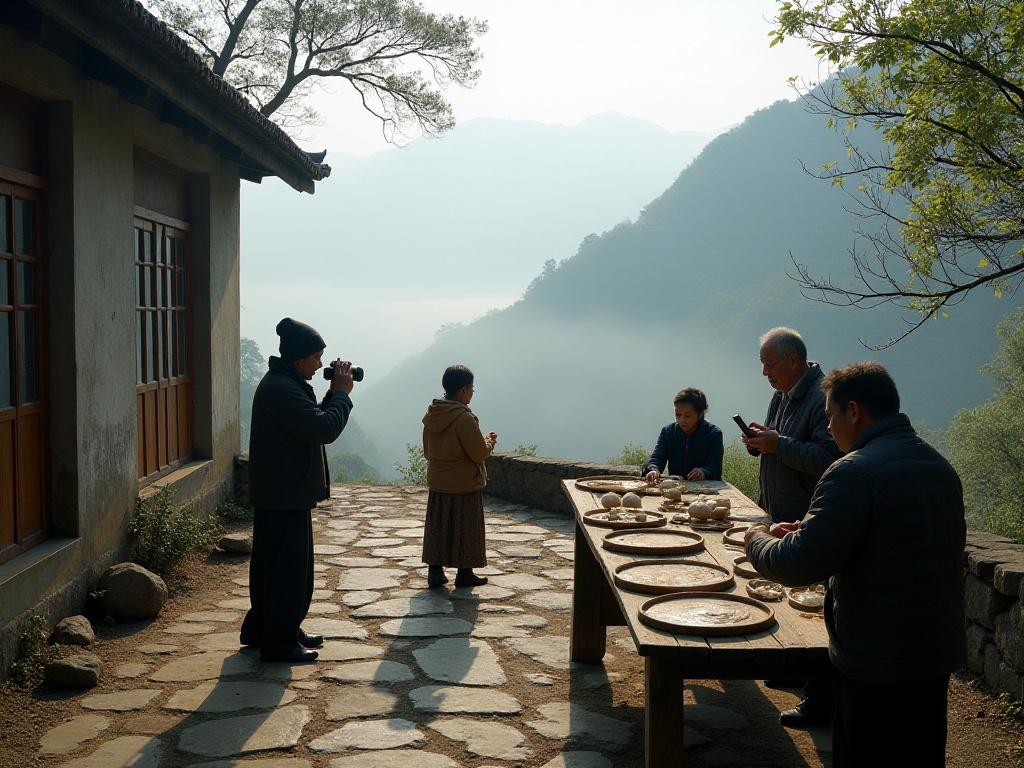
Future Prospects
Now, Xiao Yang is planning to open a second store. She says rural revitalization can't rely on just one flower blooming. She hopes to create such cultural spaces in more villages, letting more young people see their hometown's value and development potential.
Her plan is to open different themed cultural spaces in several surrounding characteristic villages. For example, opening a café incorporating batik art in a village famous for batik, or a café showcasing silversmith culture in a village with century-old silversmith traditions. Each store must combine local characteristics, letting visitors not only enjoy food and scenery but deeply understand local culture.
Meanwhile, she's actively exploring new models integrating agriculture, culture, and tourism. This includes developing boutique homestays, organizing farming experience camps, and cultural study tours. She believes that with careful operation, rural tourism has great potential.
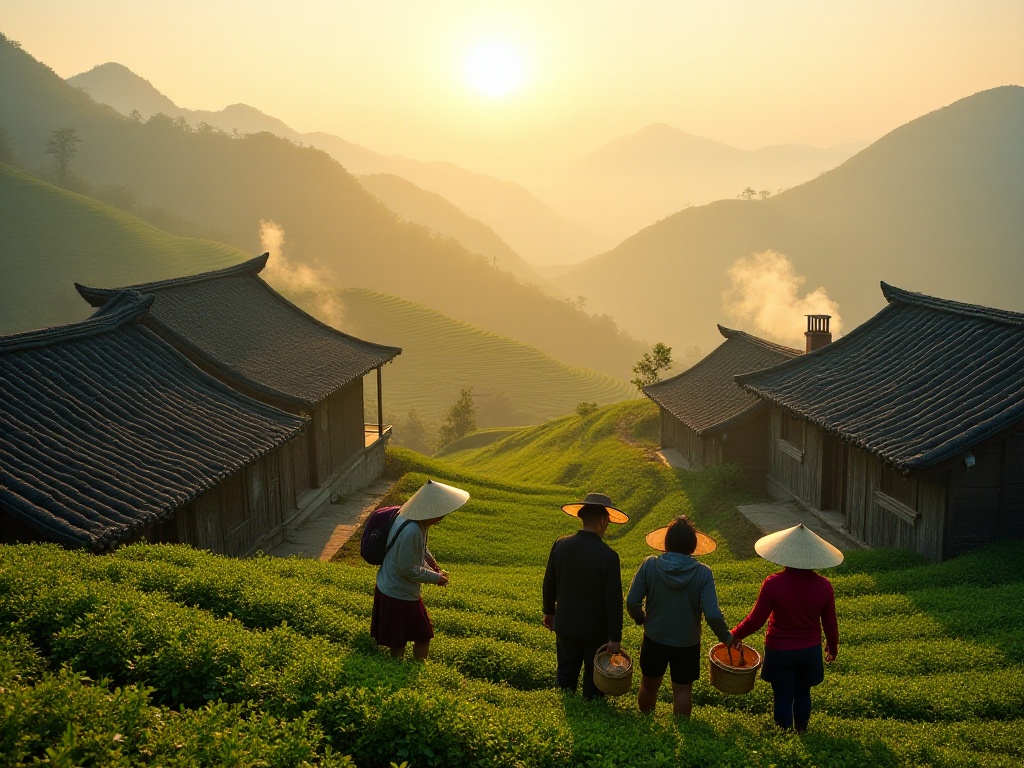
Insights
From this café hidden in rice fields, I see unlimited possibilities for rural tourism. It's not just a place to drink coffee, but a bridge connecting city and countryside, tradition and modernity. It shows us that rural revitalization needs not only policy support but also young people's innovation and responsibility.
The success here tells us that rural tourism can't simply copy urban models, but must be based on local characteristics, dig deep into cultural connotations, and find suitable development paths. Only by truly respecting local cultural traditions and focusing on villagers' actual needs can sustainable development be achieved.
Final Words
If you want to visit, I recommend coming during harvest season. Then, the terraced fields covering mountains and valleys are golden, the most spectacular time of year. You can not only drink fragrant coffee but also participate in harvesting, experiencing farmers' harvest joy.
Remember to book in advance, especially as weekends are often fully booked. It's best to choose morning or evening times, when sunlight is perfect for photos and scenery is most beautiful. If time allows, stay a few days to experience the slow-paced lifestyle here.
Oh, and definitely try the hand-dripped coffee with glutinous rice cake, an unforgettable flavor combination. The coffee uses selected Yunnan small-bean coffee, while the glutinous rice cake is freshly made with local glutinous rice, soft and sweet, complementing each other perfectly. Sitting by the floor-to-ceiling windows, enjoying food while appreciating terrace views, such afternoon moments will surely become your most memorable travel memories.
Next
Hidden Gems in Rural Vietnam: Rediscovering Serenity Post-Pandemic
As the world emerges from the cocoon of lockdowns, Vietnam's countryside unfurls its wings, revealing a kaleidoscope of hidden treasures. The pandemic's pause has birthed a new era of travel, one that whispers of untrodden paths and authentic encounters. Rural Vietnam, once the backdrop to frenetic city escapes, now takes center stage in a renaissance of rustic allure.
In-Depth Exploration: 10 Hidden Rural Tourism Destinations in Europe Worth Experiencing in 2024, Making Your Travel Unique
A comprehensive overview of global rural tourism destinations, featuring distinctive villages and countryside locations across Europe, North America, and Asia. Explores diverse accommodation options and outdoor activities from Serbia's Zlatibor to Hokkaido, Japan
The Ozark Mountains: A Forgotten Outdoor Paradise in South-Central USA, A Sanctuary Where City Dwellers Can Find Inner Peace
Explore diverse rural tourism destinations worldwide, featuring unique experiences from Native American culture in the US South to traditional villages in Eastern Europe and natural landscapes in Asia-Pacific, highlighting authentic cultural encounters and sustainable travel
Next
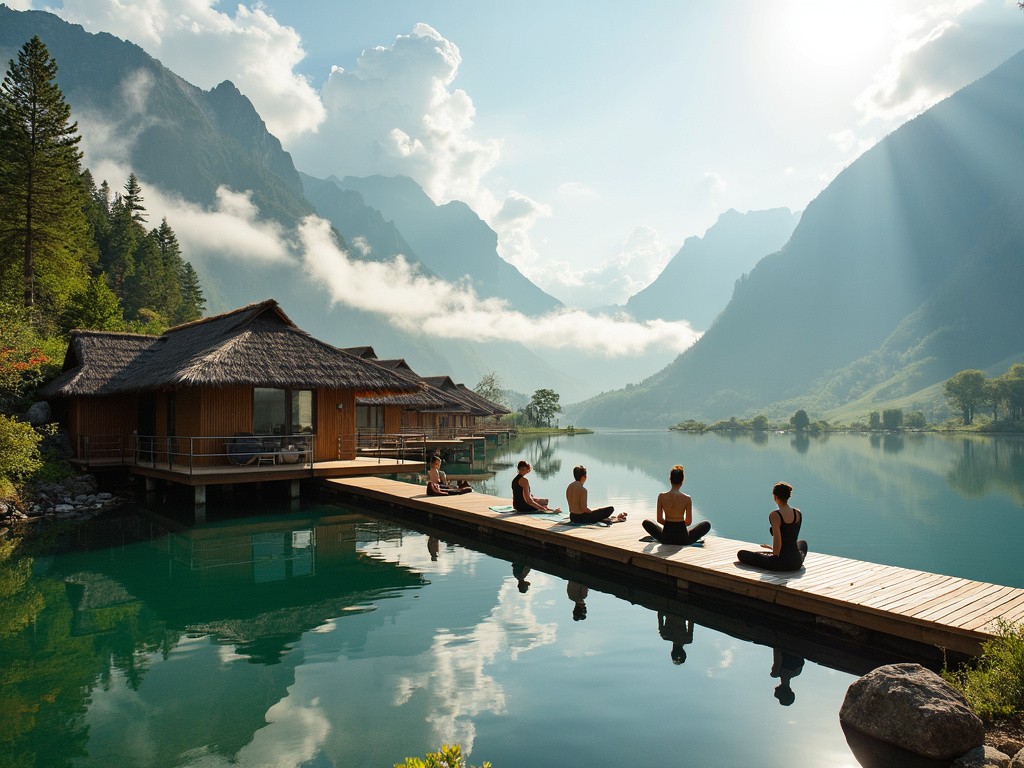
Hidden Gems in Rural Vietnam: Rediscovering Serenity Post-Pandemic
As the world emerges from the cocoon of lockdowns, Vietnam's countryside unfurls its wings, revealing a kaleidoscope of hidden treasures. The pandemic's pause has birthed a new era of travel, one that whispers of untrodden paths and authentic encounters. Rural Vietnam, once the backdrop to frenetic city escapes, now takes center stage in a renaissance of rustic allure.
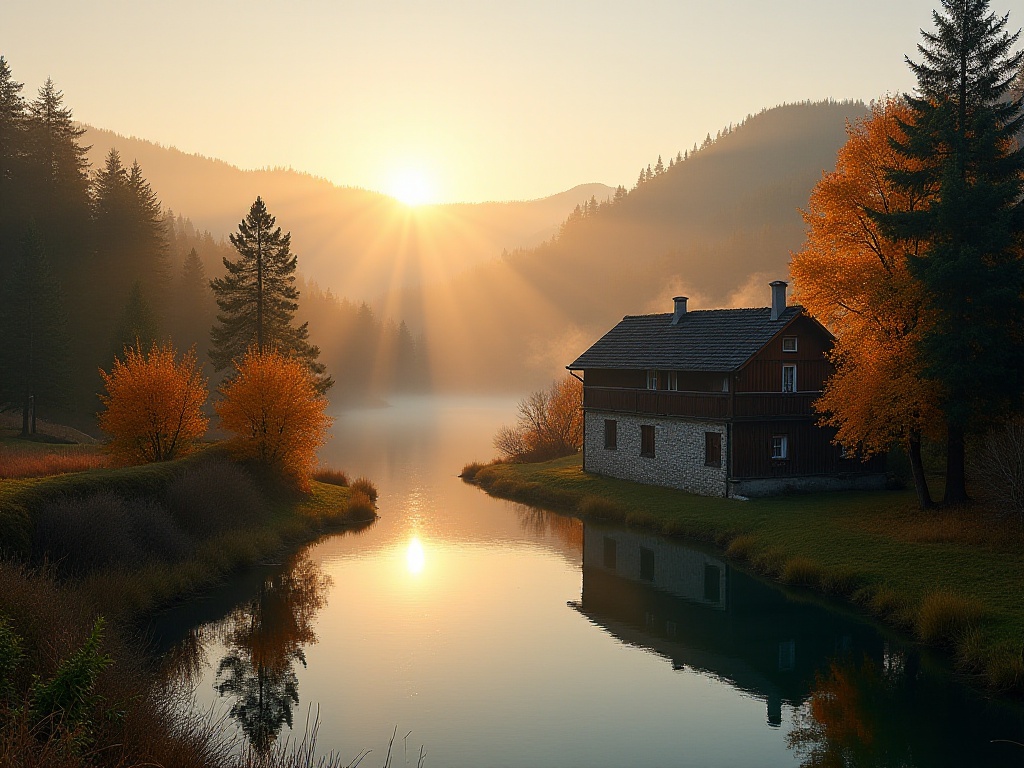
In-Depth Exploration: 10 Hidden Rural Tourism Destinations in Europe Worth Experiencing in 2024, Making Your Travel Unique
A comprehensive overview of global rural tourism destinations, featuring distinctive villages and countryside locations across Europe, North America, and Asia. Explores diverse accommodation options and outdoor activities from Serbia's Zlatibor to Hokkaido, Japan
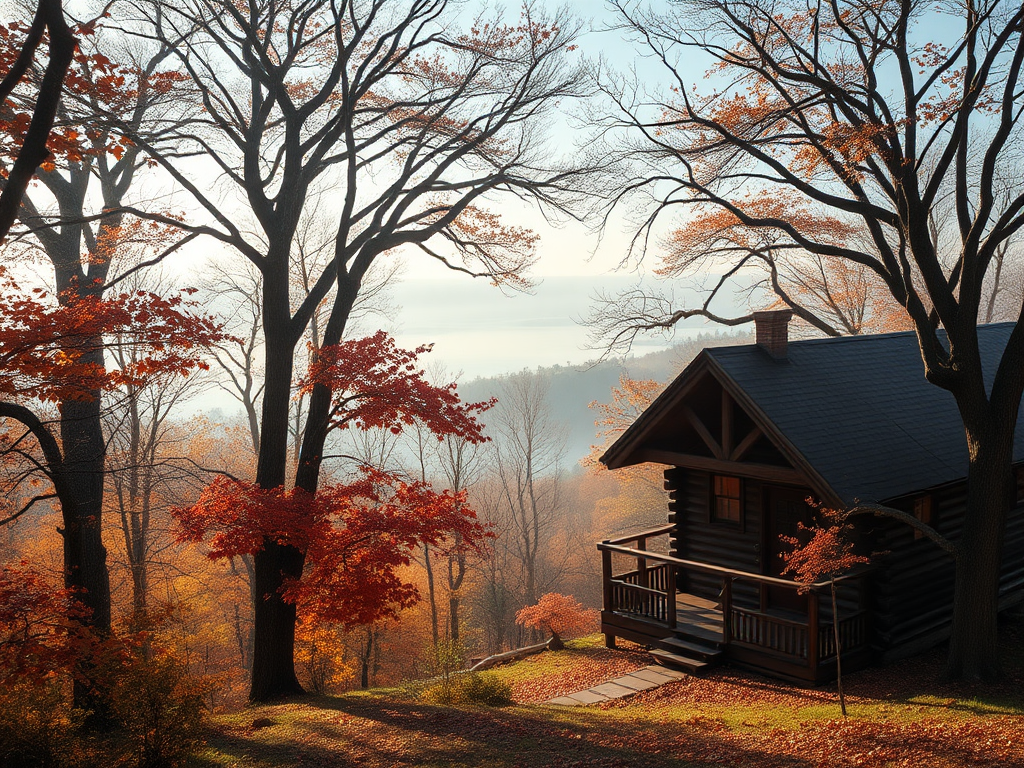
The Ozark Mountains: A Forgotten Outdoor Paradise in South-Central USA, A Sanctuary Where City Dwellers Can Find Inner Peace
Explore diverse rural tourism destinations worldwide, featuring unique experiences from Native American culture in the US South to traditional villages in Eastern Europe and natural landscapes in Asia-Pacific, highlighting authentic cultural encounters and sustainable travel

